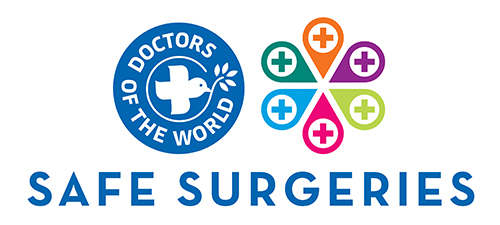Winterton
Medical Practice

Manlake Avenue
WINTERTON
DN15 9TA
Telephone: 01724 732202
Norfolk Avenue
BURTON UPON STATHER
DN15 9EW
Telephone: 01724 720202


Medical Emergencies dial 999
Out of Hours: dial 111

Winterton
Medical Practice

Manlake Avenue
WINTERTON
DN15 9TA
Telephone: 01724 732202
Norfolk Avenue
BURTON UPON STATHER
DN15 9EW
Telephone: 01724 720202


Medical Emergencies dial 999
Out of Hours: dial 111


Image silviarita
Menopause is a natural biological process marking the end of a woman’s reproductive years, typically occurring between the ages of 45 and 55. It is characterized by the cessation of menstrual periods for 12 consecutive months and is accompanied by various physiological and emotional changes due to fluctuating hormone levels. While menopause is a normal part of aging, its symptoms and effects can significantly impact a woman’s quality of life, necessitating awareness and management strategies to ensure well-being during this transition.
Menopause is divided into three stages: perimenopause, menopause, and postmenopause. Perimenopause, the transitional period leading up to menopause, can last several years and is marked by irregular menstrual cycles, hot flashes, night sweats, and mood swings. During this stage, the ovaries gradually produce less oestrogen, leading to various symptoms. Menopause itself is confirmed when a woman has not had a menstrual period for 12 consecutive months. Postmenopause follows and lasts for the remainder of a woman’s life, with symptoms like vaginal dryness, decreased libido, and an increased risk of osteoporosis due to lower oestrogen levels.
The hormonal changes during menopause can affect various aspects of health. The decline in oestrogen levels is linked to an increased risk of cardiovascular diseases, osteoporosis, and metabolic disorders. Hot flashes and night sweats can disrupt sleep, leading to fatigue and mood disorders such as anxiety and depression. Vaginal atrophy and dryness can cause discomfort and affect sexual health. Additionally, weight gain and changes in fat distribution are common, which can impact self-esteem and overall physical health.
Managing menopause involves a combination of lifestyle modifications, medical treatments, and supportive therapies. Regular exercise, a balanced diet rich in calcium and vitamin D, and maintaining a healthy weight are crucial for mitigating the risk of osteoporosis and cardiovascular diseases. Hormone Replacement Therapy (HRT) is an effective treatment for relieving severe menopausal symptoms by replenishing estrogen levels, though it must be tailored to individual needs and risks. Non-hormonal treatments, such as antidepressants and anti-seizure medications, can also alleviate certain symptoms like hot flashes.
Many women explore alternative and complementary therapies to manage menopausal symptoms. Phytoestrogens, found in soy products and flaxseeds, mimic oestrogen and can help reduce symptoms like hot flashes. Herbal supplements, such as black cohosh and red clover, are popular but should be used with caution and under medical supervision. Mind-body practices like yoga, meditation, and acupuncture can help manage stress and improve overall well-being.
Menopause is a significant life stage that requires a comprehensive approach to management. Understanding its stages and symptoms, along with implementing effective lifestyle changes and treatments, can significantly improve the quality of life for women undergoing this transition. Regular consultations with healthcare providers ensure that the chosen management strategies are safe and effective, allowing women to navigate menopause with confidence and maintain their health and vitality.
Navigating menopause can be challenging, but there are numerous credible support organisations and resources available to help women manage their symptoms and improve their quality of life. Below are some key organisations and resources that provide trustworthy information and support for women experiencing menopause.
.> NHS menopauseThe Menopause Charity
The Menopause Charity is a leading UK-based organization offering evidence-based information and support on menopause. They are recognised for their commitment to high-quality health information and have been awarded the PIF TICK, the UK's only assessed quality mark for print and online health and care information. Their resources cover a wide range of topics, including hormone replacement therapy (HRT), managing symptoms like hot flashes and brain fog, and advice on talking to employers about menopause
>> Website The menopause charityThe Menopause Exchange
The Menopause Exchange provides free, independent, and practical advice about menopause, midlife, and post-menopausal health. They offer a quarterly newsletter filled with articles written by healthcare professionals and experts, covering self-help lifestyle tips, HRT, alternative therapies, and nutrition. The Menopause Exchange is recommended by the Royal College of Obstetricians & Gynaecologists, the British Dietetic Association, and numerous local authorities and publications
>> Website The menopause exchangeThe British Menopause Society (BMS)
The British Menopause Society works to educate, inform, and guide healthcare professionals on menopause and all aspects of post-reproductive health. They offer various resources for the public, including the latest research, educational materials, and guidelines on managing menopause symptoms. The BMS also partners with organisations like the Royal College of Obstetricians and Gynaecologists to support national menopause education and support initiatives
>> BMS - LANCET PAPERSUniversity College London (UCL) Menopause Programme
UCL has launched the UK National Menopause Education and Support Programme, aiming to empower people with information and build supportive communities. This program collaborates with leading reproductive health organisations, including Wellbeing of Women and the Sophia Forum. They offer workshops, focus groups, and educational resources tailored to diverse groups, including those experiencing early menopause and those from marginalized communities (UCL).
>> MENOPAUSE - UCLWomen’s Health Concern
Women’s Health Concern, the patient arm of the British Menopause Society, provides a range of resources to help women understand and manage menopause. Their website includes information on symptoms, treatment options, and lifestyle changes to support health during menopause. They also offer access to a network of menopause specialists and support services
>> Website women's health concernThe Lancet Series on Menopause
This series includes comprehensive papers on optimizing health after early menopause, promoting mental health during menopause, and managing menopause after cancer. These papers are aligned with current international and national guidelines and provide a balanced approach to managing menopause symptoms
>> lancet series on menopauseResearch from UCL's Institute for Global Health
UCL's ongoing research projects, such as the Positive Transitions Through the Menopause (PRIME) Study, offer valuable insights into the experiences of menopausal women and aim to improve support and treatment options (UCL).
>> UCL PROGRAMME